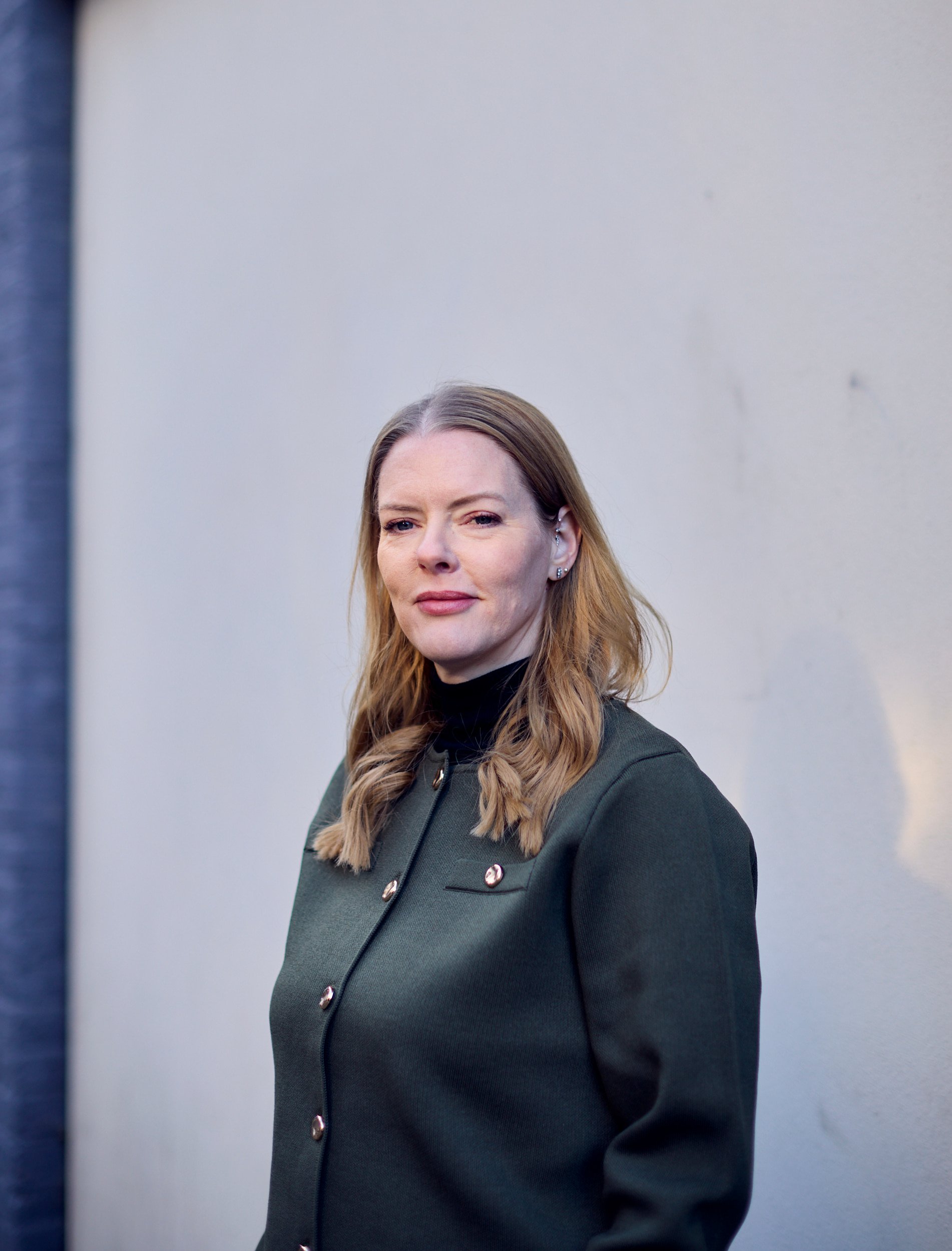Changemaker
Building a workplace that works with life, not around it
What happens when you’re going through menopause at work?
Adopting a child midway through a project?
Going through IVF while leading a team?
Experiencing symptoms of endometriosis during back-to-back meetings?
Women in the workplace are navigating challenges like this every day, and Kelly Clark, Head of Risk at DUAL UK, the specialist underwriting arm of Howden, is no exception.
Now, she’s turning her own experience into bold workplace change, pioneering menopause support and wider women’s health policy at Howden.
Kelly joined Howden while navigating a family history of cancer. After undergoing BRCA gene testing, she finally made the decision to have preventative surgery herself. At the same time, she was supporting close friends and family on their own journeys – through IVF, menopause and endometriosis.
Kelly took just a week off work to recover from her surgery, choosing not to share the experience with her colleagues , nor reflect on its broader implications in the workplace. “I felt that ‘being strong’ meant I had to leave my personal issues at the office door. But keeping quiet wasn’t good for my health,” she says.

A powerful conversation
Then a powerful conversation – with a lead from Howden’s Respect Women’s Health employee resource group (ERG) – changed everything.
“I realised I wasn’t the only one going through something like this,” says Kelly . “And if we don’t talk about it, nothing changes.”
Women face a multitude of health-related hurdles at work throughout their lifetimes – everything from period problems and fertility struggles to endometriosis, polycystic ovary syndrome (PCOS) and menopause.
Research carried out by Simply Health and the CIPD found that almost a quarter (23%) of working women had considered leaving their jobs due to the impact of menopause or menstrual symptoms. Over half (52%) said their symptoms had a negative impact on their ability to concentrate at work, while two-fifths (40%) admitted that they affected their productivity.
Incredibly, 87% said they wanted their employer to be more supportive when it comes to women’s health.
Turning pain into policy
For Kelly, what began as a one-off conversation sparked a deeper interest in our Respect Women’s Health ERG – and eventually led to her co-chairing the group.
Howden’s ERGs are employee-led communities which aim to nurture and develop our inclusive culture. They create awareness for key issues – like gender balance, neurodiversity, multiculturalism, disability, LGBTQ+ and parents at work – by hosting events, partnering with charities and D&I experts, and collaborating with HR to make sure our policies work for everyone.
“I was already passionate about women’s health,” she says. “But so many of us in the workplace are navigating major health challenges in our personal lives. It can have such a profound effect on wellbeing, performance and belonging, and yet no-one was talking about it.
“Women’s health isn’t just a women’s issue. It’s a business and cultural issue,” she adds. “And when we acknowledge that, we build better workplaces for everyone.”
Recognising the need for better menopause support, Kelly and her then co-chair set out to build a business case to implement a dedicated policy at Howden.
“We wanted to normalise menopause,” says Kelly. “Not make it some HR form you fill out in secret – but something you can talk about with your manager or your team. Without flinching.”
Their ambitious proposal was taken on by the business. Today, Howden’s UK offices deliver a wide-ranging programme that includes live training, e-learning for managers and employees, direct access to specialist healthcare via menopause-trained GPs, and personalised care plans. Bringing this programme to life cost over £150,000, which was fully funded by the business.
“The difference [at Howden] is that you’re allowed to ask for what people actually need,” says Kelly. “We didn’t try to water it down or make it easier to approve. We presented a fully costed proposal, backed it with evidence and stories, and asked for it all.”

Turning support into action
Menopause support is now embedded in Howden’s ways of working – from desk fans and flexible working hours to menopause champions across the business. And the Women’s Health ERG kickstarted that revolution – tackling real needs and, more importantly, opening the door to honest conversations and meaningful support.
“We talk a lot about how we’re a people-first business, but it’s things like this that prove it. We don’t just talk about care, we actually invest in building the systems to support it,” says Kelly.
A culture that works around life
Beyond menopause, the group’s policies are changing women’s lives by raising awareness of the support available.
One employee, faced with a daunting three-year wait for endometriosis treatment, didn’t realise she was eligible for private care until she used our virtual GP services, made available through our healthcare cover. She received a same-day referral, saw a specialist two days later and had the surgery the following week – a life-changing turnaround.
Julie Pinker, a marketing manager, found solace through the Women’s Health ERG’s ‘Latte Ladies’ sessions – informal drop-in gatherings offering connection, comfort and conversation for those dealing with health challenges. While navigating menopause and living with an autoimmune disease, Julie also cares for her daughter, who has endometriosis, and her father, who is living with Alzheimer’s. “I come away with a feeling of renewed hope and wellbeing, plus recommendations of books to read, podcasts to listen to and products that help” she says.

A force for good, for each other
“It’s about practical empathy,” says Kelly. “You don’t need to go through it to support someone who is. You just need to listen and act.”
And this is just the beginning. Alongside her new co-chair Sam Oswald, whose day job is in social impact, the group is continuing to raise awareness of women’s health issues.
They’ve created a strong community to support women – and a safe space for them to share their stories.
And they’re looking ahead with plans for fertility support, domestic abuse leave and carers’ rights.
All shaped by the people who need it – and understand it – the most.